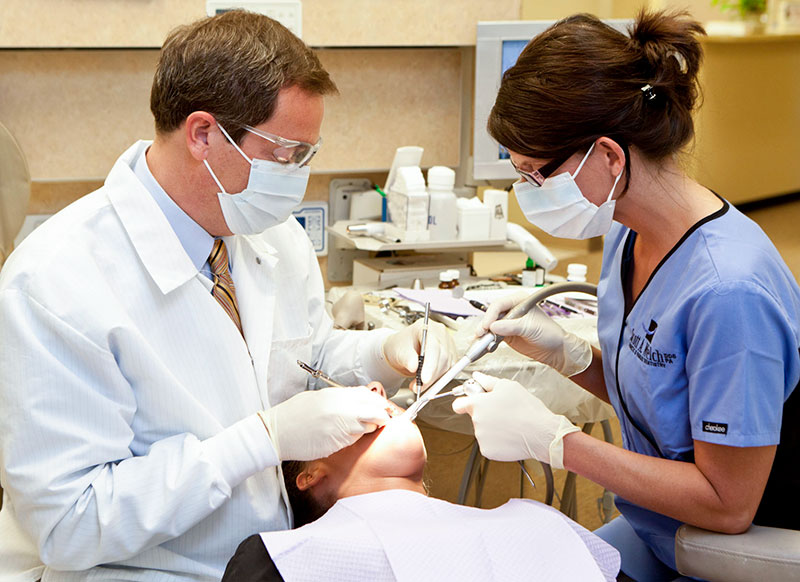DENTAL SERVICES
MISCELLANEOUS SERVICES



While root canal treatment has a bad reputation as being painful, when done correctly, it’s usually no more painful than having a tooth cavity filled. The vast majority of tooth or mouth pain you feel is in the time leading up to a “root canal” – caused by your tooth pulp and/or tooth nerve being infected. When Dr. Welch performs a root canal treatment, he removes the damaged tooth’s pulp and nerve, cleans inside the tooth, and replaces the diseased tooth tissue with an antibacterial filling. Then, a temporary filling or crown is placed on the affected tooth to allow the tooth to heal. You will need to return to our office for a second visit when Dr. Welch will restore and protect the tooth by adding a custom-fitted tooth crown or cap.
After leaving our office, you must treat your affected tooth carefully because you only will have a temporary filling or crown in place.
As with virtually any dental procedure, there are some common after-treatment patient complaints following root canals:
To perform the root canal, Dr. Welch will need to numb the nerves to the tooth’s root. You can expect several numbing shots near the affected tooth; typically, the anesthetic makes a patient’s tongue and lips feel numb.
With virtually any dental procedure, sensitivity to hot or cold foods and drinks is a potential side effect. After the root canal, you may notice temporary sensitivity to certain sweet foods, air, or extreme temperature.
After any dental procedure, it’s important to practice routine, healthy dental hygiene. Keeping your teeth clean is a critical component of good dental health, significantly reducing the likelihood that you will develop cavities or other dental problems.

If you have any questions, or would like to make an appointment, call our professional dental team at (336) 288-4499.